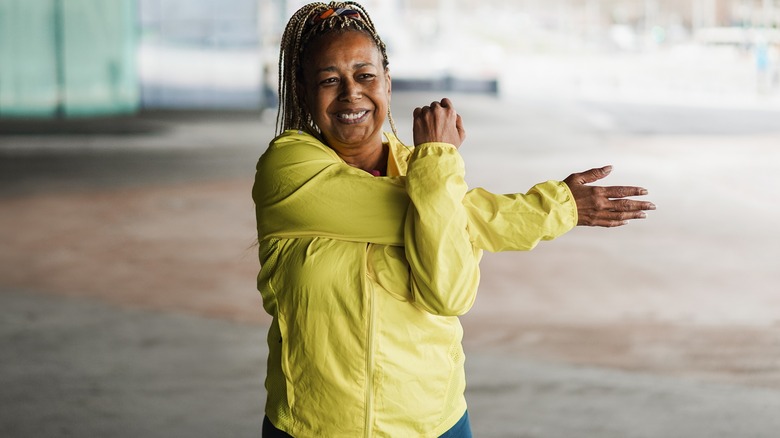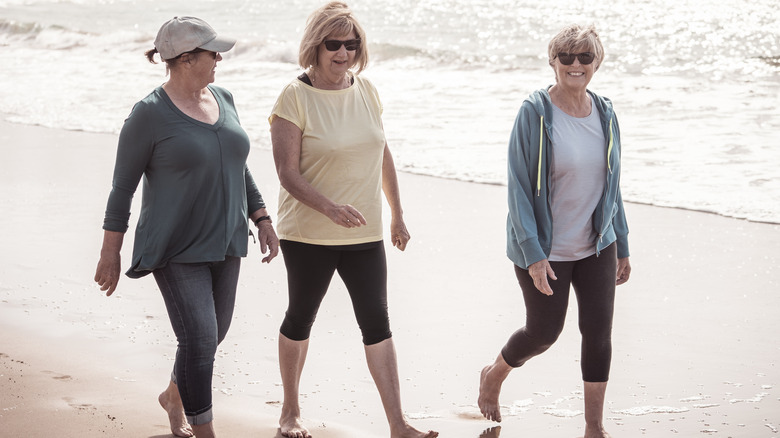New Research Shows What Physical Activity Does For Female Life Expectancy
When thinking about how long we'll live, we often look towards our parents and grandparents for clues about longevity. But new research shows that genetics don't entirely determine our destiny.
The idea of genetics only playing a partial role in how long we live is not a new concept. In fact, a 2018 study published in Circulation offered clues about how we can influence our own longevity, including lifestyle factors that can help prevent premature mortality. The research highlights five critical factors such as not smoking, eating a high-quality diet, maintaining a body mass index (BMI) of 18.5 to 24.9, keeping alcohol consumption moderate, and engaging in at least 30 minutes of moderate to vigorous physical activity per day. These low-risk factors were found to increase life expectancy by 14 years for women who adopted all five factors.
But now, new research suggests one of these factors in particular could be a game changer for longevity.
Staying active to increase longevity
A new study published in the Journal of Aging and Physical Activity analyzed data from the Objective Physical Activity and Cardiovascular Health (OPACH) study, finding that even if your genes predict you won't live very long, physical activity can still help you extend your lifespan (via Medical News Today). The OPACH study explored the links between physical activity, cardiovascular disease, and injury risks from the years 2012-2020 in 5,446 post-menopausal women over the age of 63, tracking their activity with an accelerometer that they wore 24 hours a day, seven days a week.
The study added to growing research showing that our longevity has more to do with physical activity than genetics. Participants who were physically active had a lower risk of death, while those who were more sedentary had a higher risk of death. And both of these associations remained true even after accounting for genetic predispositions.
Dr. Scott Kaiser, director of Geriatric Cognitive Health for the Pacific Neuroscience Institute at Providence Saint John's Health Center in Santa Monica, CA, told Medical News Today that physical activity may be somewhat viewed as a "miracle drug," but it's important to note that in the research, correlation is not causation and there's more to learn from future research. However, he hopes people will understand that just because you may be genetically predisposed to a shorter lifespan, you can still stay active to increase your longevity.


